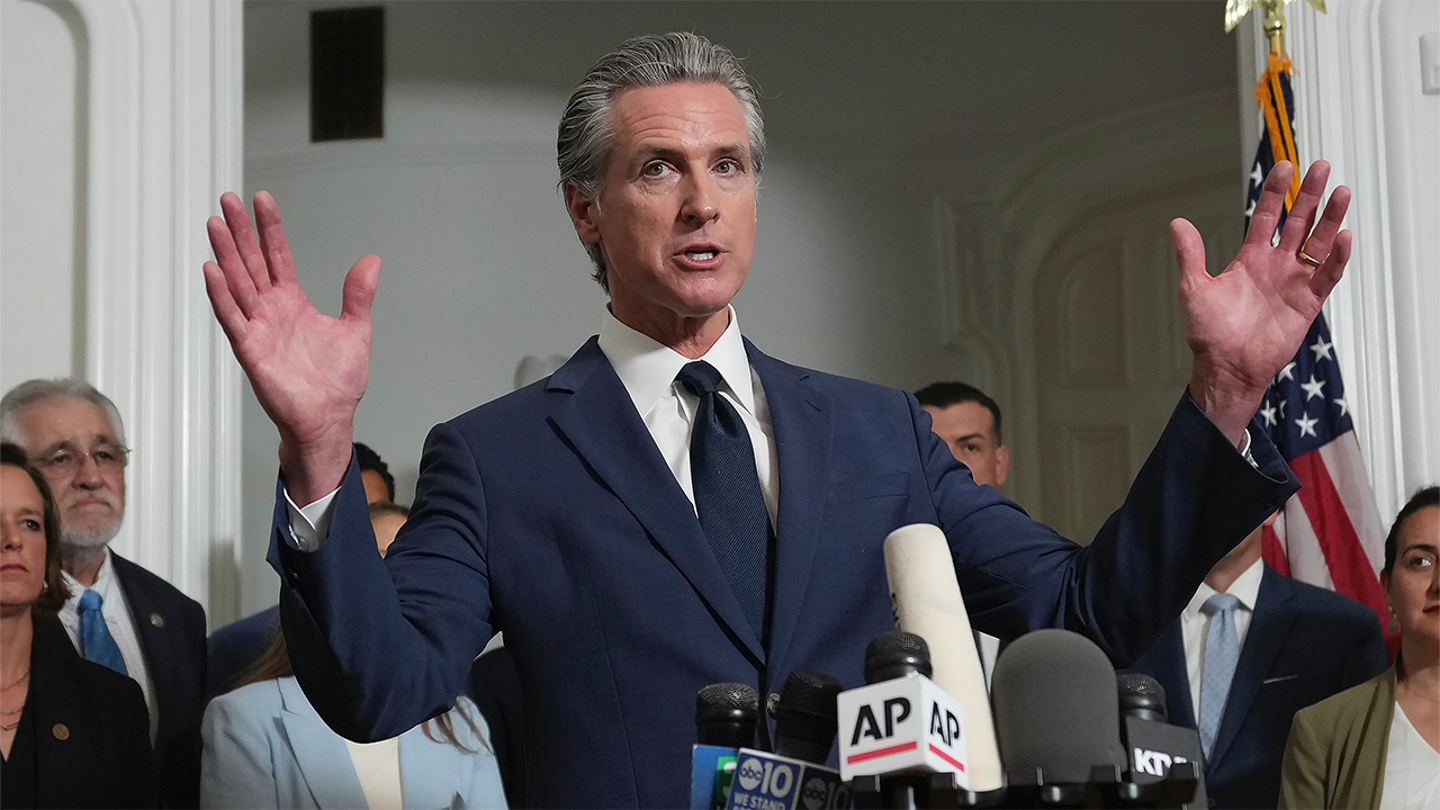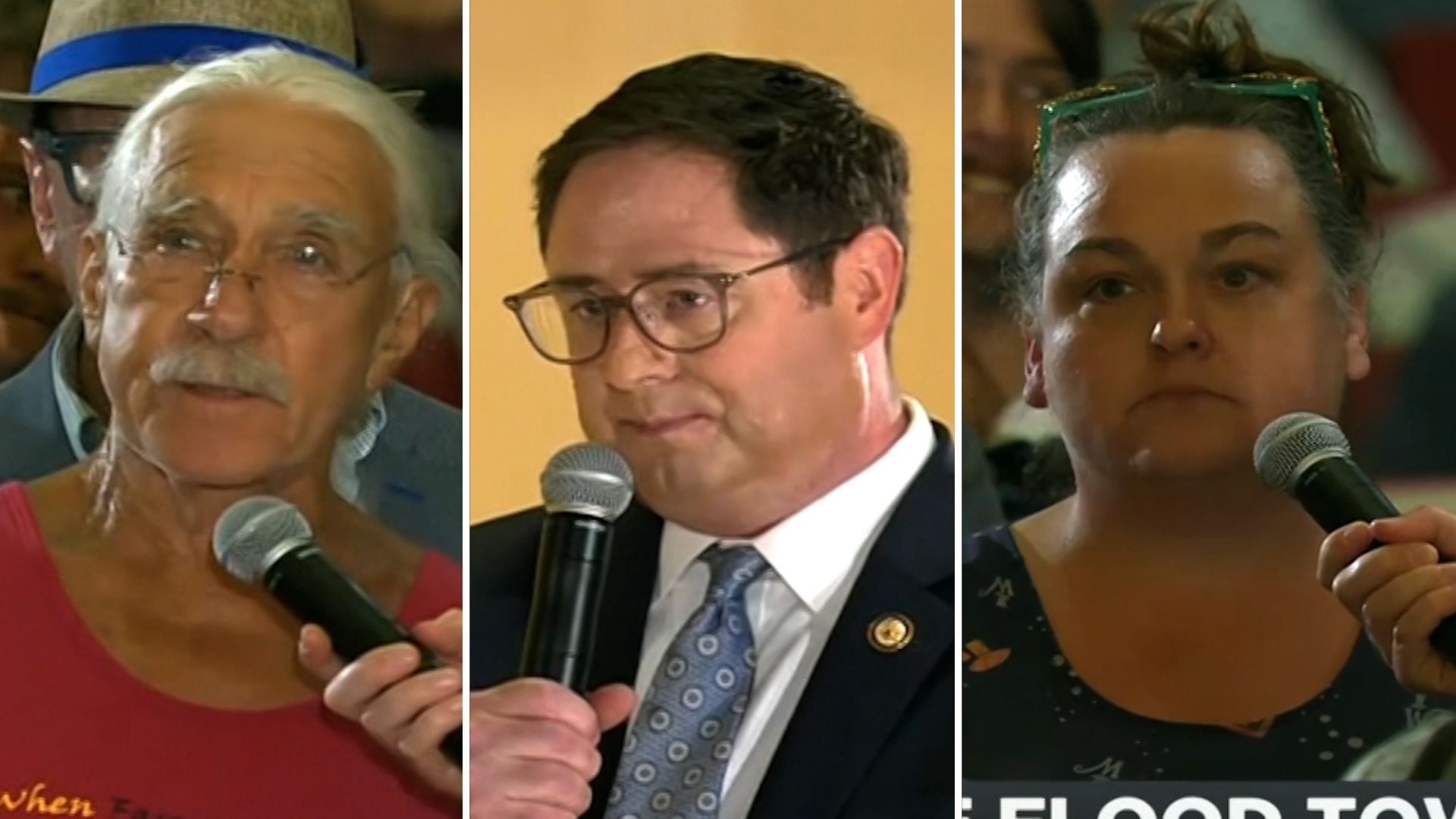
Newsom unveiling California redistricting effort to counter Trump-backed push in Texas
Entities mentioned:
- Gavin Newsom: Ambition, Competitive spirit, Power
- Donald Trump: Power, Control, Influence
- California Democratic Party: Power, Control, Competitive spirit
- Republican Party: Power, Control, Self-preservation
- Arnold Schwarzenegger: Justice, Duty, Legacy
- National Republican Congressional Committee: Power, Control, Competitive spirit
Article Assessment:
Credibility Score: 65/100
Bias Rating: 55/100 (Center)
Sentiment Score: 35/100
Authoritarianism Risk: 60/100 (Mixed/Neutral)
Bias Analysis:
The article presents views from both Democratic and Republican sides, including criticisms of Newsom's plan. However, it gives more space to Newsom's perspective and motivations, slightly tilting the overall tone towards a center-left position.
Key metric: Electoral Competitiveness
As a social scientist, I analyze that this article highlights a significant escalation in the ongoing battle over redistricting and its impact on electoral competitiveness. Governor Newsom's aggressive response to Republican redistricting efforts in Texas represents a departure from California's previous commitment to non-partisan redistricting. This move could potentially alter the balance of power in the House of Representatives, affecting national policy-making. The use of mid-decade redistricting as a political tool raises concerns about the stability and fairness of electoral systems, potentially undermining voter trust in democratic processes. The article also underscores the increasing nationalization of state-level politics, with state actions being framed as direct responses to federal-level political maneuvers.

GOP Lawmakers Clarify Their Hate-Filled Rhetoric Only Meant To Stoke Fundraising
Entities mentioned:
- Republican members of Congress: Greed, Power, Self-preservation
- National Republican Congressional Committee: Influence, Control, Ambition
- Democratic lawmakers: Self-preservation, Justice, Unity
Article Assessment:
Credibility Score: 55/100
Bias Rating: 30/100 (Lean Left)
Sentiment Score: 25/100
Authoritarianism Risk: 65/100 (Authoritarian Tendencies)
Bias Analysis:
The article leans left, presenting Republican actions in a highly critical light without balancing perspectives. The satirical tone and selective framing of GOP statements suggest a left-leaning editorial stance.
Key metric: Political Polarization Index
As a social scientist, I analyze that this article highlights the dangerous intersection of inflammatory political rhetoric and fundraising tactics. The GOP's clarification attempts to distance themselves from violence while simultaneously continuing to use divisive language. This approach likely exacerbates political polarization, potentially increasing distrust in democratic institutions and normalizing extreme rhetoric for financial gain. The implied connection between fundraising strategies and real-world violence raises serious ethical concerns about the state of political discourse and its societal impacts.

‘How much does it cost for fascism?’: Tensions erupt at Nebraska GOP congressman’s town hall
Entities mentioned:
- Rep. Mike Flood: Duty, Loyalty, Self-preservation
- President Donald Trump: Power, Control, Legacy
- National Republican Congressional Committee: Influence, Control, Unity
- Sen. Elissa Slotkin: Justice, Moral outrage, Duty
- Rep. Adam Smith: Duty, Self-preservation, Professional pride
Article Assessment:
Credibility Score: 75/100
Bias Rating: 45/100 (Center)
Sentiment Score: 35/100
Bias Analysis:
The article presents multiple viewpoints and includes perspectives from both Republican and Democratic politicians. While it gives more space to criticism of Republican policies, it also includes counterarguments and attempts to balance the narrative.
Key metric: Public Trust in Government
As a social scientist, I analyze that this article highlights the growing tension between elected officials and their constituents, particularly regarding controversial policies and perceived threats to democracy. The contentious town halls, especially Rep. Flood's, demonstrate a significant divide between Republican representatives supporting Trump's agenda and a vocal portion of their constituents. This disconnect, coupled with concerns over authoritarianism and government spending, suggests a potential decline in public trust in government. The article also touches on bipartisan concerns regarding presidential pardon powers, further indicating a broader issue of faith in governmental systems and checks and balances.